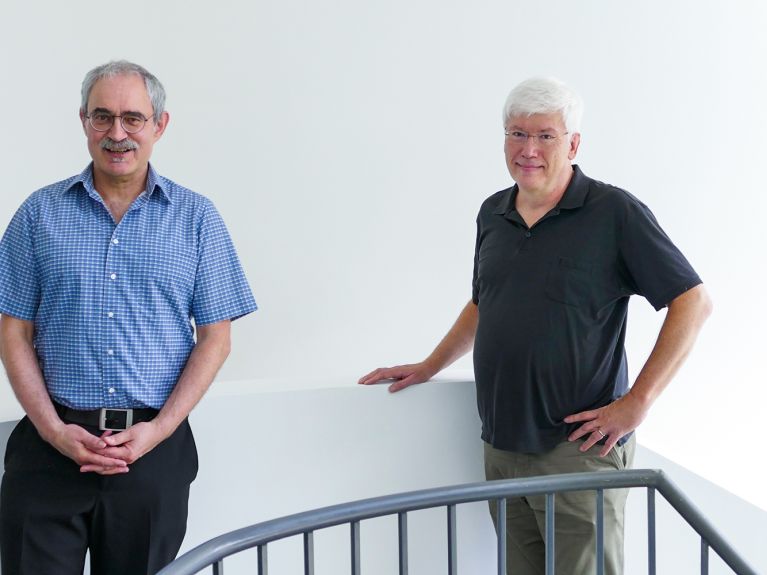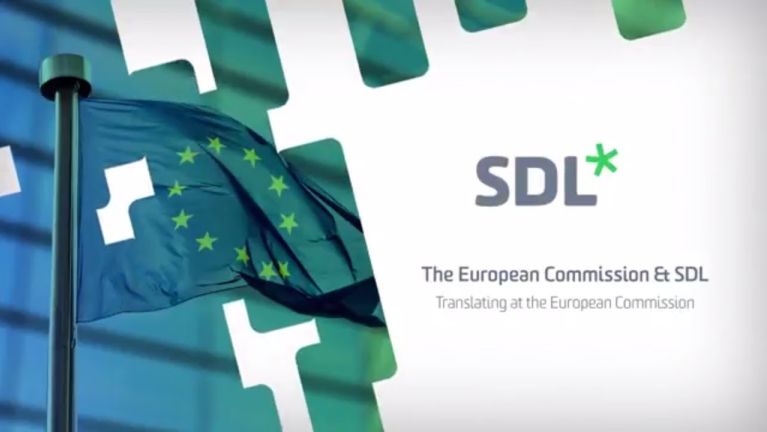European understanding
Texts, documents, websites: researchers at the DFKI together with the Technologie-Company Tilde have developed an online translation tool for Germany’s EU Council Presidency.

Online translation services make everyday life easier and can prove a useful aid when it comes to complex topics in a foreign language, or simply to improve understanding. Together with its Partner Tilde, the German Research Center for Artificial Intelligence (DFKI) has developed a new translation tool. Created for Germany’s EU Council Presidency, the EU Council Presidency Translator translates texts, documents and websites between the 24 official languages of the European Union (EU). The 24 languages are covered by translation systems from DFKI and Tilde as well as DeepL and the EU translation system eTranslation. Professors Joseph van Genabith and Stephan Busemann are responsible for the project at the DFKI. They explain in our interview how the tool works – and why some amusing mix-ups happen from time to time.

Professor Busemann, Professor van Genabith, what sets the EU Council Presidency Translator apart?
Josef van Genabith: The translation machine uses four different digital translation resources: DeepL, Tilde, eTranslate and the DFKI’s systems, each of which has its own particular strengths. Besides individual words and phrases, users can also upload entire documents such as Word or PowerPoint files and have them translated in the same format. What is more, the Translator can also convey any website into one of the EU’s 24 official languages – while likewise retaining the appearance of the original website.
Stephan Busemann: The project is our way of making a statement: our systems are cutting-edge. This shows that Germany and Europe are among the world’s leading countries in the area of artificial intelligence. Our technologies were developed here, and the servers are also located in Europe. That is a great advantage in terms of security.
Germany and Europe are among the world’s leading countries in the area of artificial intelligence.
Who uses the EU Council Presidency Translator?
Josef van Genabith: Anyone can use the tool to translate any sentence they like from one official EU language into any one of the 23 other EU languages. Unlike other providers, some of the systems in the Translator are additionally specialised in all topics relating to the European Union and Germany’s EU Council Presidency. The translation departments at the ministries use our tool in their day-to-day work. The DFKI and Tilde systems in particular are tailored to their needs. This involves for example translating certain words and phrases identically, as far as possible. The Translator supplies a rough translation that is then improved by human translators.
Dieses YouTube-Video kann in einem neuen Tab abgespielt werden
YouTube öffnenThird party content
We use YouTube to embed content that may collect data about your activity. Please review the details and accept the service to see this content.
Open consent formHow do you teach the Council Presidency Translator to do this?
Josef van Genabith: It’s an ongoing process. Our translation tool is being fed with data incessantly. The more correctly translated words and phrases it has at its disposal, the better its translations will become. It is comparable to athletes: the more they train, the more successful they become. Our translation resource learns from every one of its errors.
When does the Translator reach its limits?
Stephan Busemann: Some amusing results can be produced when a text mentions Austrian Chancellor Sebastian Kurz. If a German sentence begins with his surname (which means “short”), the Translator will frequently translate it into another language as an adjective. That said, the technology is improving all the time, and we are confident that mistakes of this kind will soon stop occurring.
Josef van Genabith: The systems still find it difficult when one sentence makes references to the content in another; this is because they currently translate each sentence individually. We are already working in our laboratories on systems that can recognise references. Another point is that translation machines designed for a particular purpose have a weakness: their translations will then be less well suited to other topics. This is another thing we are keen to improve.
Should human translators be worried about their jobs?
Josef van Genabith: No, we do not believe so. If we leave human translators out of the equation entirely, we will be at the mercy of the results of translation machines – and nobody wants that. The way translators are trained and work will continue to change, however. In the future, translators will work more with digital technologies, so their training must be expanded to include this component. The interest is there, and commitment shown by translators to data collection, testing and evaluating the systems is enormous. We find human translators to be very open to the new technologies and in developing the Presidency Translator are working hand in hand with our colleagues at the ministries.



